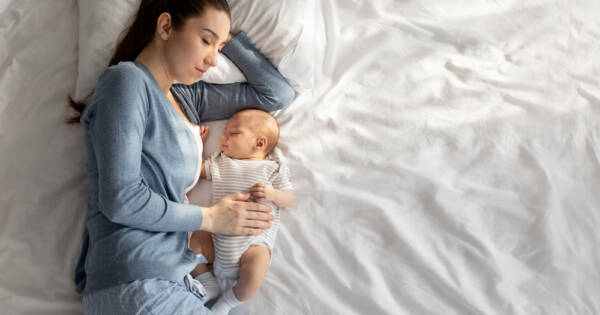The first trimester of pregnancy is a roller coaster of physical, emotional, and hormonal changes that may make you feel like you have little control over your own body. However, this remarkable transformation is literally building a safe haven for your baby.
The changes you’ll endure will happen quickly as your hormones and body begin providing the vital nourishment needed to grow a healthy baby. However, that doesn’t mean you won’t be moody and uncomfortable at times (or most of the time for some unfortunate moms-to-be).
Here are ten common things to expect during your first trimester of pregnancy…
10. Food Aversion
Food aversions that borders on repulsion when you walk by what was once your favorite Thai food restaurant is common (and upsetting) during the first trimester. Food aversions typically peak and levels off around week 11 of pregnancy, but your hormones will continue to affect your appetite thought pregnancy. Food aversions could also be associated with morning sickness.
9. Morning Sickness
Despite the name — morning sickness can actually occur at any time of day or night. Although not everyone is plagued by this, it is common to start around 6 weeks but can begin as early as 4 weeks, and last until around 14 weeks. Unfortunately, some women suffer from severe morning sickness — called hyperemesis gravidarum — which means “excessive vomiting during pregnancy”. This usually follows a similar timeline to morning sickness, however it often begins earlier and last longer. Unfortunately, prenatal vitamins can cause nausea or aggravate morning sickness. They are important for baby’s development — so do continue taking them, just be sure not to take them on an empty stomach!
8. Tender Breasts
Unusual sore and tender breasts—more severe than with menstruation—are also typical of the first trimester. Breasts may also become a bit swollen and enlarged and feel fuller and heavier. The tenderness and swelling will usually happen withing one to two weeks after you conceive, and can last for a while as progesterone levels rise during your pregnancy.
7. Frequent Urination
During the first trimester, frequent urination during pregnancy is often caused by pregnancy hormones, an increase in the amount (and speed) of blood circulating through your body, and your growing uterus. As the placenta develops and the uterus grows, you may experience increased pressure on the bladder that causes frequent urination and even incontinence. Not to mention, you may find yourself feeling dehydrated quickly and need to drink more water to support the changes in your body, so the increased intake will also mean more trips to the washroom!
6. Moodiness
Mood swings are a common sign of early pregnancy—especially due to the increased levels of hormones in your system that might make you cry one minute and lose your temper the next. It’s important to know that this is normal and to have increased patience from loved ones at this emotional time.
5. Cramps
Abdominal cramping is common during early pregnancy as your uterine muscles are preparing to support your fetus. However, if you experience continuous and painful cramping, you should visit a doctor as this may be a sign of a fallopian tube pregnancy.
4. Gas
As the uterus creates a safe haven for baby, you will feel increased pressure on your stomach and digestive system, resulting in uncomfortable indigestion, bloating, gas, and even constipation.
3. Fatigue
Even the most bubbly moms-to-be complain that their get-up-and-go— got up and went in the first trimester of pregnancy. You have to be patient with your body as the majority of energy is funneled into building the placenta, and providing hormonal support to the new life growing inside you.
2. Dizziness
With all of these new hormones flowing willy-nilly through your bloodstream, dizziness, lightheadedness, vertigo, and headaches are quite common in the first trimester. Just be sure to sit or lay down and rest if you’re feeling woozy.
1. A Baby Bump
A wee bump will be the very first visual sign that you’re pregnant during the first trimester. This is more due to your swelling uterus, which will cause your lower abdomen to distend, than it is your growing baby (the fetus is not quite big enough yet to show on the outside).













